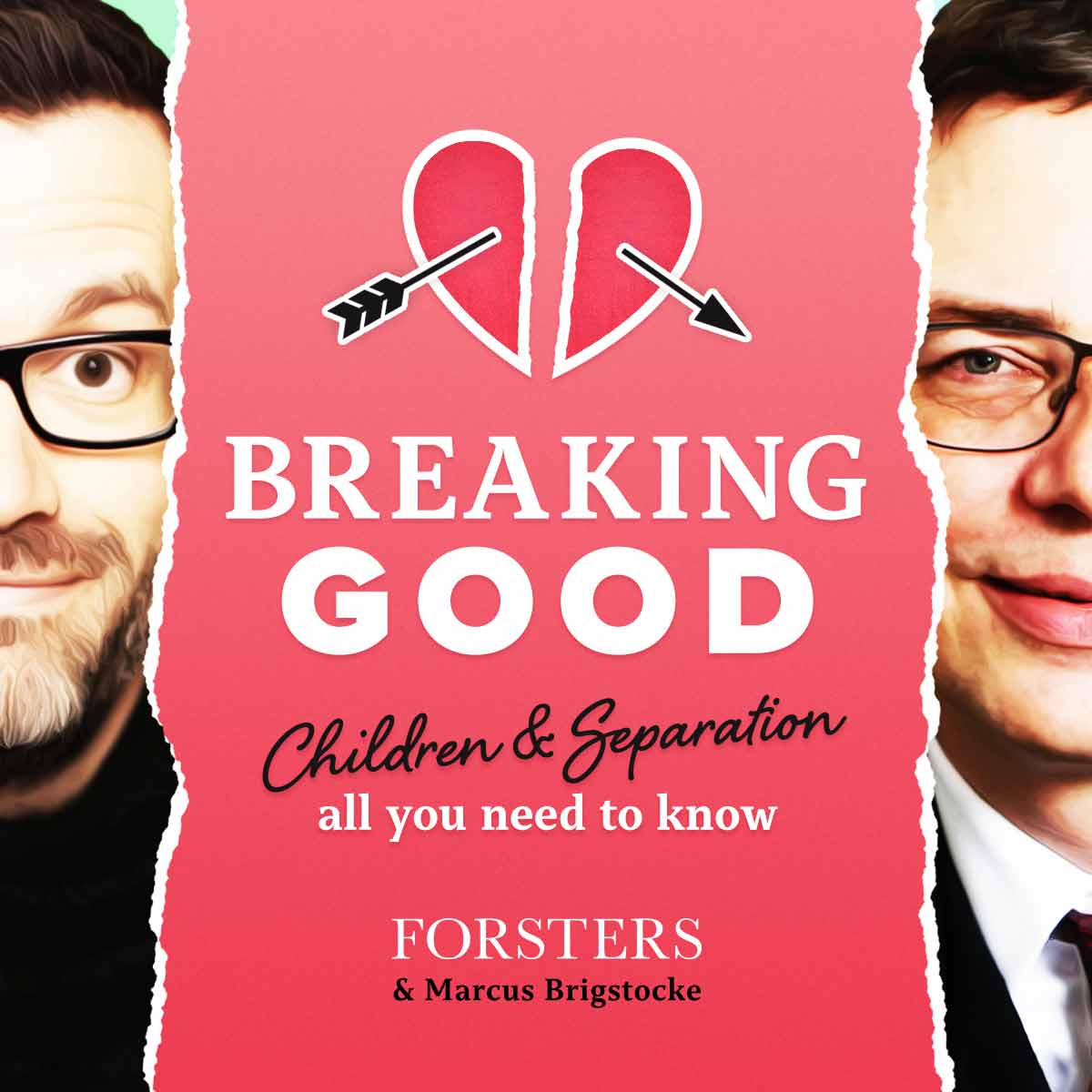Can I file my video or audio evidence in children proceedings in the family court?

In disputes between parents about children (e.g. where their children should live or how much time they should spend with each parent), clients frequently come to us with evidence they have gathered. In an age where our smartphones are never far from reach, this can take many forms: screenshots, videos (taken secretly or with the participants’ knowledge), voice notes, voice recordings, social media posts, appearances on “FindmyPhone”, and so on and so forth.
We often need to consider carefully how to handle a particular piece of video or audio evidence. Will the court permit our client to rely on it? Is it helpful to our client’s case? Should our client make further recordings? The answer is sometimes not straight-forward, and we would encourage anyone who finds themselves in this position to ask a specialist family lawyer. Some things to consider include:
Is there a child in the recording?
In a case in 2016 (M v F [2016] EWFC 29), the Family Court found that: “It would almost always be wrong for a recording device to be placed on a child for the purpose of gathering evidence in family proceedings, whether or not the child was aware of its presence”. In that case, the answer may have seemed obvious—the father in question had sewn a recording device into a child’s clothing and recorded her from the beginning to the end of the school day. In those circumstances it is not at all surprising that the court found that the father was not capable of meeting his daughter’s emotional needs, having undermined her trust by recording all sorts of aspects of her life without her consent.
However, many parents—like the father in that case—can be tempted to try and use video or audio devices to gather evidence if they have concerns about risks to a child as a result of another parent’s care. It is important to bear in mind that this can reflect badly on the parent doing the recording. Sometimes the simplest cross-check is to ask what an observer seeing the video will think is your—the recorder’s—number one priority at the time of recording. Is it to protect your child from harm, or is to gather evidence? If something is happening where you ought to step in, then there is a risk that gathering evidence in your dispute with the other parent will be perceived as being more important to you than your child’s wellbeing. If you have concerns about risks to your child while in another parent’s care, it is of course important to raise those, and there are lots of ways of doing so. You should seek specialist advice about how you can raise and address your concerns and the impact it will have on child arrangements.
If it is your child’s wishes and feelings you are trying to capture by recording, you should be reassured that there are special rules and practices for ascertaining children’s wishes and feelings in family proceedings. Those are aimed at ensuring that children can express their views in a neutral setting where they don’t feel they need to say what one or other parent wants to hear. As the Association of Lawyers for Children flags in their written submissions in a wider review of transparency in the Family Court those rules may prevent the judge from allowing evidence regarding children to be presented in court at all if it has been obtained outside of the special process for gathering children’s views, and that is likely to be the case for video or audio recordings of children (see section 13(4) of the Children and Families Act 2014).
Is another adult in the recording?
Secret or non-secret recordings of adults are a trickier area. There are reported cases of secret video recordings being used as proof of abuse by adults (for instance Medway Council v A (Learning Disability: Foster Placement [2015] EWFC B66, where video footage of a foster carer was persuasive evidence that she had been racially abusive).
However, the courts do still have reasons to be sceptical of video/audio evidence. The weight to be given to a piece of video or audio footage and whether it should be allowed as evidence may therefore have to be considered by a judge on a case-by-case basis. Before it can be treated as evidence, the other party in the case will have to be shown the video or audio clip and given an opportunity to respond.
A judge considering a video or audio clip may be thinking about any of the following, and you should take advice from your legal team about whether your video is persuasive (and whether it is necessary and proportionate to try and use it) in light of all of these factors.
- Does the person in the video know they are being recorded? If not, do they know they are being overheard at all? Some comments which might be abusive, threatening etc. can only be characterised in that way if there was an intention for the victim to hear them.
- Does the recording capture the whole context? What was said before and after the video which might explain what is taking place in the video in a different light? What is going on off-screen or out of earshot?
- Has the video/audio clip been edited? Even simple audio and video editing software available for free online is capable of completely changing the implications of a clip. (Think cutting the “not” out of the sentence “I am not going to have a fight with you”.)
Finally, it is important to make sure that your conduct in recording another adult does not amount to harassment. Recording constantly or frequently, using an aggressive tone when declaring you are going to record, or making threats about what you will do with the footage, might (among other things) all be treated as harassment. There are reported cases where the courts have seen this sort of conduct as sufficient to grant a Non-Molestation Order preventing a person from making recordings of an ex-partner (Re C (A Child) [2015] EWCA Civ 1096).
Is the recording of a professional?
If you are nervous about attending a meeting with a professional, such as a social worker or a member of CAFCASS (children and families court advisory and support service, who regularly conduct interviews in private children matters), a family therapist, or a mediator, it can be tempting to record the interaction secretly. You may be looking for a way to ensure that you have a good record of the meeting in case you forget something afterwards. If you are anxious that you won’t be believed or understood, you may also be looking to ensure there is a record of your words so that you can correct any mis-reporting at a later stage.
However, you should bear in mind how your relationship with a professional might be damaged if you record without their knowledge and this later comes to light. If you ask up-front to make a recording, some social workers and CAFCASS officers are encouraged to agree (by internal policies, although the extent to which this filters through is patchy). If you make a recording with the professional’s consent, you should bear in mind that he or she will almost certainly have to disclose to the other party (and possibly the court) that a recording of the conversation exists, and the other party may request to listen to it. (The exception is your legal team, in respect of whom all communications with you attract legal privilege).
A compromise is often to let the person to whom you are speaking know that you are anxious about note-taking or minute-taking and ask to see their notes of the meeting before any follow-up steps are taken (such as the preparation of reports). That way, with the help of your solicitor, you can correct any misunderstandings which need dealing with at that stage, whilst maintaining a constructive relationship with the professional involved.
The Transparency Project (a charity) has produced some useful guidance.
What should parents record and how?
Notwithstanding all that is said above, sometimes it can be helpful for clients to keep records or evidence (making this all the more tricky a question!). Depending on the exact circumstances of your case, you may be advised to do any of the following:
- Sometimes it can be helpful to keep contemporaneous notes of matters in children’s lives (i.e. notes of things happening then and there so that you have notes “from the time”). These might help your solicitor to understand the children’s day-to-day lives better. In some circumstances they may be used as evidence in court (although, as with any evidence, the judge will factor in that they are one person’s sole account and will think carefully about the level of one-sidedness which may appear). Some people find it helpful to keep a diary, an annotated calendar, or even a series of regular voice notes.
- Although it is unlikely for a judge to look at swathes of correspondence, it can be useful to keep copies or back-ups of communications between you and the other parent. This can give sometimes give a flavour of the way you communicate and help professionals identify the nature of the relationship and the best way forward. Copies of that correspondence may include copies of video/audio clips sent, or voicemails left for each other, but will always be most helpful when the whole chain of messages appears in one place. It is not unheard of for correspondence to appear in evidence, so always be polite.
- In cases of domestic violence, it can sometimes be important to preserve evidence (e.g. photographs at the time of injuries, damage to property etc.). Although, and this is very important: if you feel unsafe or that your child is unsafe it is much more important to call the police and to get yourself to a safe place. The police record all their calls and will help you take the next steps to preserve evidence once they have ensured you are safe.
Polly is an Associate in our Family team.
Breaking Good – Episode Three: Children & separation – all you need to know
Co-hosts Marcus Brigstocke and Head of Family, Jo Edwards are joined by preeminent family lawyer Simon Blain to talk about how to prioritise children’s needs during separation and divorce. They explore how parents can best work together to protect children from any fall-out, the different and creative child arrangements they have seen, how to take account of a child’s wishes and the kindness of surrogate mothers.





